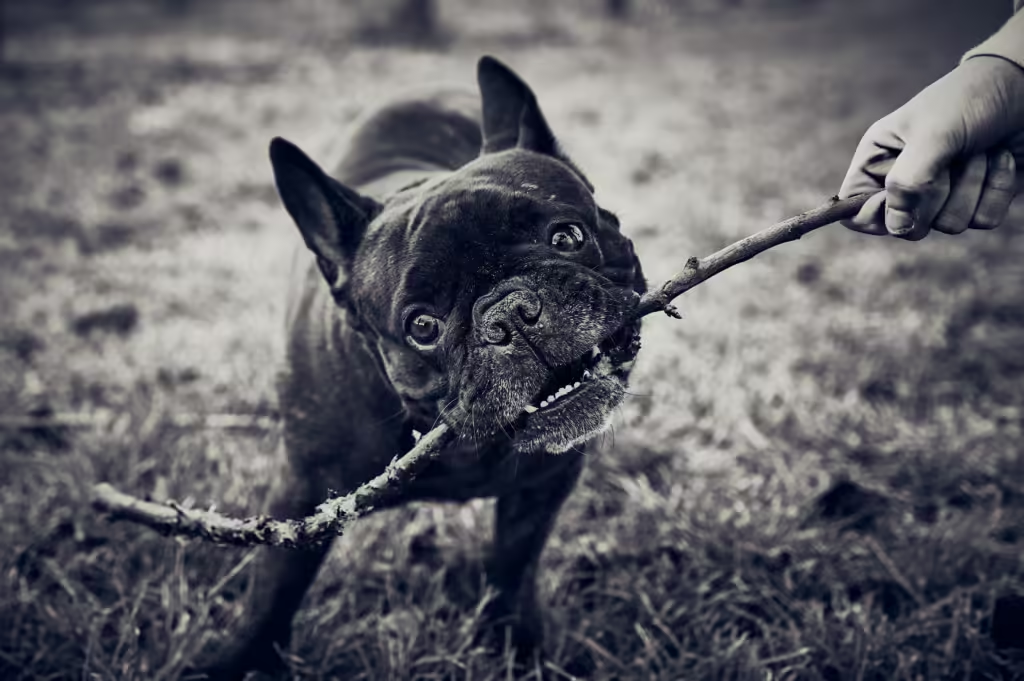Boston Terrier vs French Bulldog: How to Tell the Difference Between These Popular Breeds
As you go along the road, you happen to see it: a little black-and-white dog with large ears and a short muzzle cheerfully strolling behind his pet father. While you recognise the dog right away as a Boston Terrier, your companion remarks, “That’s a cute Frenchie!”
At first look, you could find it difficult to tell which dog is a French bulldog or a Boston terrier while they are trotting together on a sidewalk. Both the “American Gentleman” and the “Frenchie” are well-known canines, mascots, and favourites of famous people. It’s really difficult to tell who is who if they are all wearing stunning black and white tuxedos!
Due to their similar builds and markings, the Boston Terrier and the French Bulldog are frequently difficult to identify from one another, yet they each have unique characteristics.

Boston Terrier vs French Bulldog History
Because they both descended from the Bulldog, the French Bulldog and the Boston Terrier have similar appearances.
Boston, Massachusetts, is where the Boston Terrier derives its name. Originally bred in America, the Hooper’s Judge was a mix between the now-extinct English White Terrier and an English Bulldog from the 1870s.
The current Boston Terrier originated from crossbreeding with the English Bull Terrier, Boxer, Pit Bull Terrier, and French Bulldog over the years. The Boston Terrier was the country’s first non-sporting breed, which is an intriguing fact.
The English Bulldog is the common ancestor of the Boston Terrier and the French Bulldog. The Frenchie, as they are lovably referred to by their supporters worldwide, originated in England on the other side of the English Channel.

The little miniature Bulldogs that English lacemakers brought to work in Normandy during the Industrial Revolution were first highly-liked matters. The dogs were subsequently crossed with French Terriers in France to create the beloved French Bulldogs of today. Because of their bat-like ears, Parisian women championed the breed, and it became popular. Later, near the close of the 1800s, French Bulldog enthusiasts in America founded the first French Bulldog club.
Boston Terrier Vs French Bulldog Characteristics
Because of their petite stature, flat faces, large eyes, and short snouts, Boston Terriers and Frenchies have similar appearances. However, upon closer inspection, the two breeds differ noticeably from one another.
Ears: Frenchies have larger, more rounder ears, while Boston Terriers have pointy ears.
Head shape: Frenchie’s have square heads, whereas Boston Terriers have rounder heads.
Body: Boston Terriers often weigh less than 25 pounds and have a slim, light build. Frenchie’s can weigh up to 28 pounds and have a stockier build.
Height: The maximum height of a Boston Terrier is 17 inches, whereas that of a French Bulldog is 13 inches.

Coat colours: To further complicate matters, both breeds are available in black and white. However, Frenchies’ coats might be plain or have more patches, while Boston Terriers typically have symmetrical tuxedo patterns. Instead of black, Boston Terriers may have seal or brindle colourings. Brindle, fawn, cream, and white are just a few of the many more colours that Frenchies can be. Furthermore, French Bulldogs frequently lack the white stripe that Boston Terriers are supposed to have between their eyes.
Shedding
Both breeds require very little upkeep in terms of grooming. Aside from the odd wind, they have little to no odour because of their short coats. and little hair loss. However, both breeds might be susceptible to very cold temperatures because of their coats.
The stumpy little tails of both the Frenchie and the Boston Terrier are either twisted or straight, and they rest low over the rectum. A deformity in the vertebrae is the source of a twisted tail, which affects more Bulldogs than Boston Terriers.

Temperament
Though your terrier prefers to be as comfy on the couch as the next dog, it’s not like he will wake you up every morning with a clipboard and whistle. Still, bear in mind that if you want a Boston terrier, you better be prepared! Like other terriers, he enjoys mental stimulation, so you’ll find him much happier if you give him lots of puzzle toys, tricks, and hobbies. Reinforcers improve training satisfaction and bonding.
Given her slightly mischievous nature, a Frenchie may require a little more patient training during positive reinforcement. Even scampy. She may spontaneously sit down or exhibit ‘zoomies’ in response to a butterfly. She’s a “free thinker” with an attitude to match, yet she’ll typically do everything you want if there’s a belly rub involved.
Here are a few more distinctions between French bulldogs and Boston terriers that you may notice.

Health
Frenchies typically live 10–12 years, and Boston Terriers can live an average of 11–13 years.
hemivertebrae Both dog breeds are brachycephalic, meaning they have a flat face and short snouts. This implies that individuals have a higher risk of breathing difficulties, particularly during intense exertion and in hot weather. Additionally, during hot weather, they are especially prone to heatstroke, so keep your dog cool by avoiding activities in the sun.

Because of their shallow eye sockets, brachycephalic breeds may also have difficulty swallowing or sleeping, as well as an increased risk of cataracts and other eye conditions.
Furthermore, French Bulldogs are susceptible to patellar luxation, spinal issues, hypothyroidism, hip dysplasia, and elbow dysplasia. In contrast, Boston Terriers are more likely than usual to experience deafness, hemivertebrae, and patellar luxation.
Activity Level
Moderate exercise levels are required for both breeds. Compared to French Bulldogs, Boston Terriers are typically more energetic and have big bursts of energy. They enjoy playing fetch, running, and jumping, and they might even get a little fixated on a tennis ball. Although their short snouts can lead them to overheat, they would make excellent running companions. It’s best to keep an eye on both breeds on hot days or after they’ve been running a lot because they can easily overheat owing to breathing problems.
French Bulldogs are not any less fun or energetic when it comes to running and jumping, but they are a little more laid-back and nimble because of their bulkier build. Long walks or treks are excellent forms of regular, moderate exercise that can help Frenchies stay healthy and fit.

Training
Boston Terriers are eager to please their owners and are very trainable. They can pick up a wide range of skills and commands and react favourably to positive reinforcement training techniques.
Because they can be independent and obstinate, bulldogs might be more challenging to teach. Additionally, training sessions ought to be brief and interesting because they have a propensity to grow bored easily.

grooming
The short, silky coat of a Boston Terrier requires little maintenance. It normally only takes a weekly brushing and an occasional shampoo to keep them looking their best.
In contrast, the short, wrinkled coat of a bulldog needs greater upkeep. To avoid skin diseases, they should have their wrinkles cleaned every day and brushed once a week.

Boston Terrier Vs French Bulldog Which dog is better for you?
A Boston terrier might be your first choice if you’re:
able to provide a secure environment full of enrichment possibilities while embracing his freedom and brilliance.
eager to have a playful, well-mannered dog as a playmate.
devoted to ensuring he has his friends and family around to play, exercise, and spend the majority of the day with, so he isn’t left alone for extended periods. Honestly, this dog’s greatest love is to be with his people.

You could consider getting a French bulldog if:
You can offer a gentle mix of early socialisation and instruction, as well as the capacity to giggle when she strays.
You need to get yourself or an elderly loved one the ideal cuddling apartment puppy.
It’s not a huge issue to wipe a little—okay, maybe a lot—of drool off the furniture.

FAQ’s
The breeds’ respective health risks are the same. If you choose a dog from a dubious, unethical breeder, there may be health problems.
Compared to a French Bulldog, a Boston Terrier may cost between a few hundred and a few thousand dollars less.
French bulldogs don’t require a lot of exercise, but they do need mental stimulation and regular walks. Playing interactively can help them get the exercise they need.
French Bulldogs make wonderful companions for families, especially those with young children. Like with any dog, though, kids need to be taught how to safely interact with canines and to be under constant supervision.
Are Boston Terriers barkers, then? Boston Terriers don’t bark a lot in general. They are referred to as “unusually quiet dogs” by some owners. Boston Terriers typically “woof” rather than bark loudly. This does not imply that they never bark, though, as each dog will bark differently.
